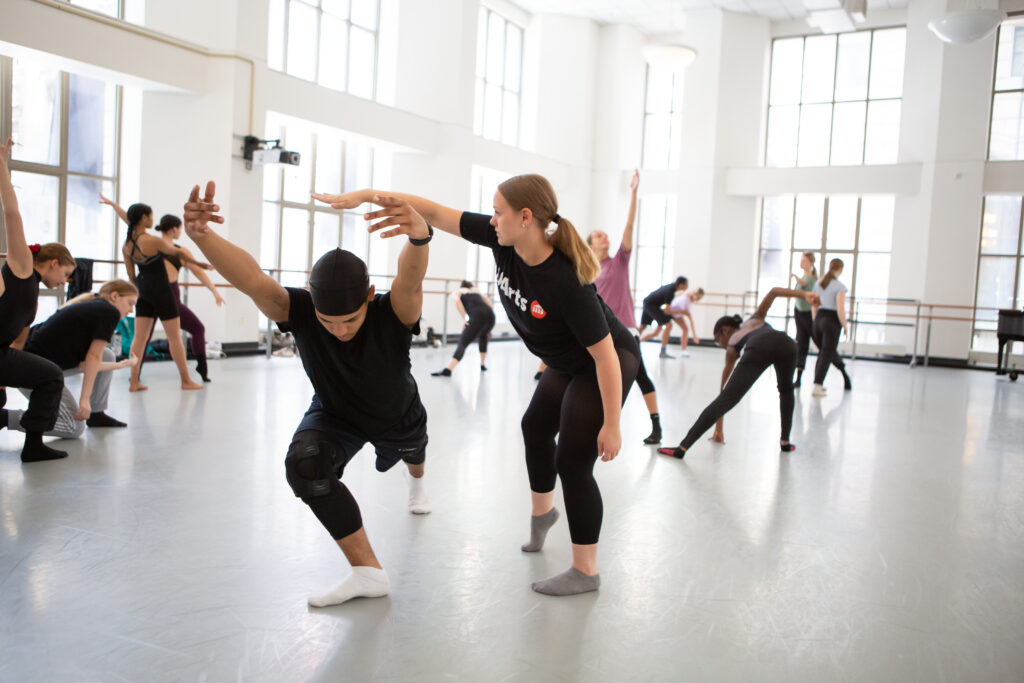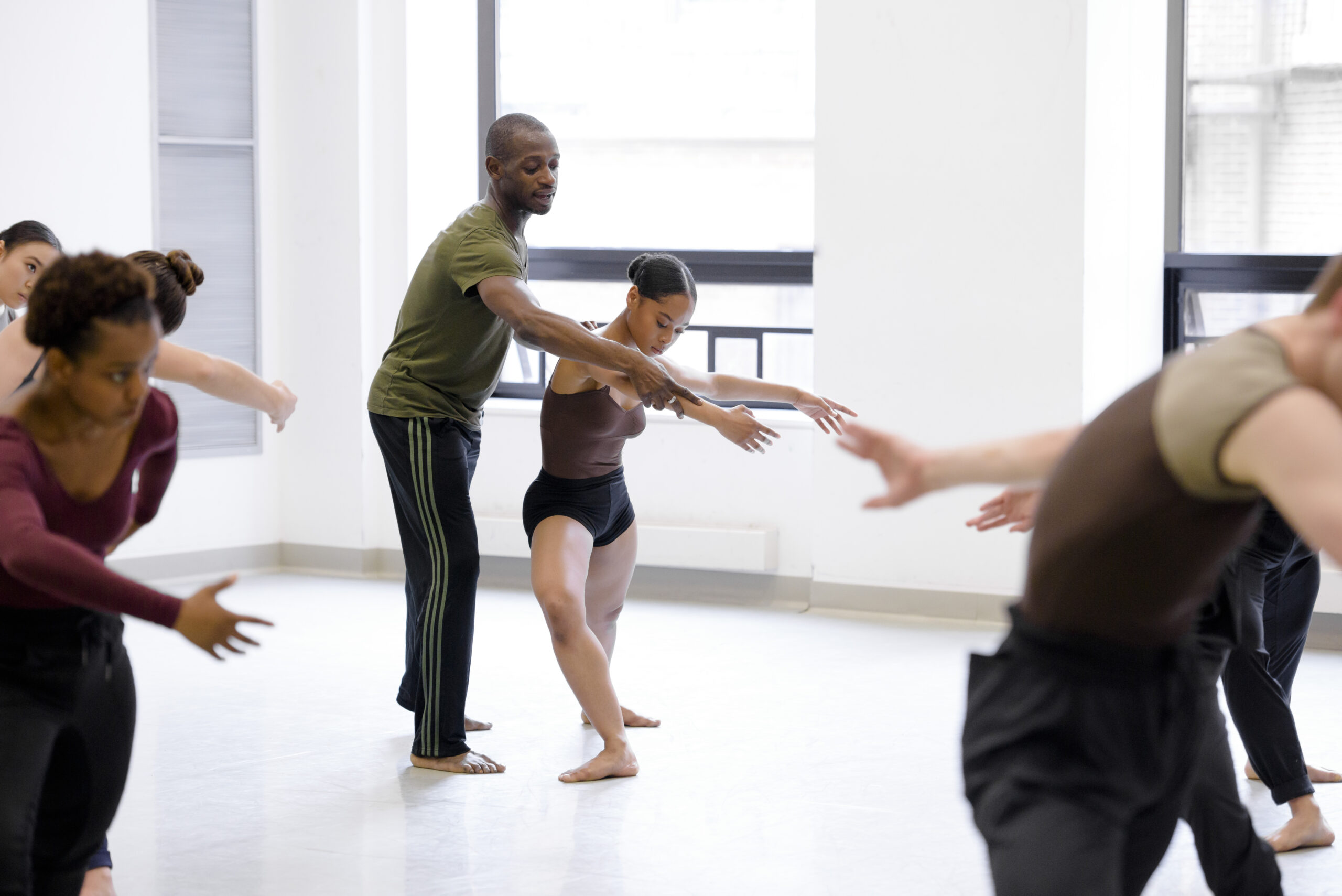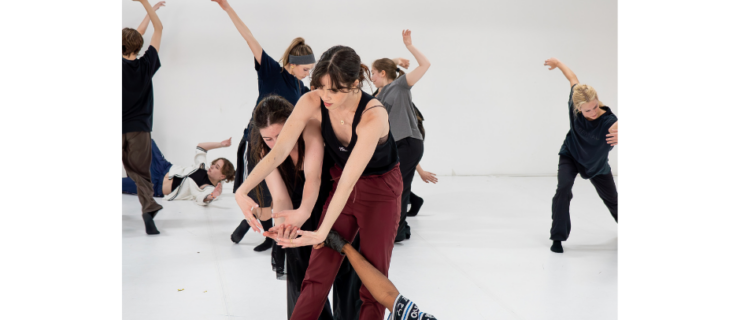Why High Schoolers Should Consider a College Summer Dance Program
When you think of a summer dance intensive, you might not immediately picture a college campus. But many higher ed dance departments do host summer programs, which can offer a chance for holistic growth and often function as a preview of life as an undergraduate. A summer on campus might help high school students plan for their futures—whether at the same school or elsewhere in the dance world.
A Taste of Undergrad Life
The college dance student experience encompasses much more than just studio time. It also includes residential and social life, interacting with nondance students, relationships with faculty, and approaching dance from an academic lens. Like many college intensives, “our summer program is based off of, and structured in relationship to, the BFA program,” says Boston Conservatory at Berklee associate professor of dance Kurt Douglas. “It emulates what a first-year student would experience.”
Students in Berklee’s Summer Dance Intensive, for example, are offered a range of technique classes as well as the chance to work with visiting choreographers. “The students get a chance to really immerse themselves in the choreographic process, which is one of the big elements of the conservatory program,” says Douglas. At Philadelphia’s University of the Arts, in addition to movement-based classes and improvisation, students at its Summer Institute are exposed to “workshops focusing on critical dance studies, speaking and writing, formulating feedback, and looking at contemporary artists,” says UArts School of Dance associate dean Jen McGinn. “There’s a larger understanding of dance as an academic subject that a lot of them are not as familiar with from their previous dance training.”
As in college, hard work is tempered with socializing. At both Berklee and UArts’ summer programs, dancers live in dorms alongside students participating in other arts programs, and partake in planned trips and activities together in the evenings and on weekends. McGinn says that the residential life at UArts pushes high school students to gain an important sense of independence and responsibility that will help them prepare to move away from home. “We’re in the center of Philadelphia, and they’re treated like adults in the sense that though they have an RA and a curfew, they’re walking from building to building down the city streets, and making sure they’re making it to mealtimes,” she says.

Preparing for the Future
The question on many students’ minds when considering a college summer intensive is if it will increase their chances of getting into that school. “It definitely helps us know them differently and better, just because we have so much more time with them,” says McGinn. For rising high school seniors attending UArts’ Summer Institute, participation in the program itself counts as an audition to the BFA program. Berklee handles things a bit differently, holding an audition for the BFA program during the summer intensive’s third week. “The first two weeks they’re able to use studio space to rehearse, and this way they don’t have to come back to reaudition during the year,” says Douglas.
While some students attend a college summer intensive with the goal of matriculating into that school, others might have their sights set on getting a BA outside of dance or auditioning for companies. Summer students in UArts’ program attend a mandatory two-hour seminar called Dance After High School, which helps them figure out the options available to them after graduation. “We get in as much as we can,” says McGinn. “Do you even need to go to college? What’s the difference between a BFA and a BA, the difference between being on a dance team versus being a major or a minor? It’s less to steer them in any one direction than to be a resource.”
Douglas agrees that whatever your dance goals are for the future, a college intensive can help. “In this collegiate space, the goal is to educate students so that it’s not just about this particular technique, or this choreographer’s style,” he says. “You’re getting a 360-degree experience of what it means to be a dancer in the world today.”





